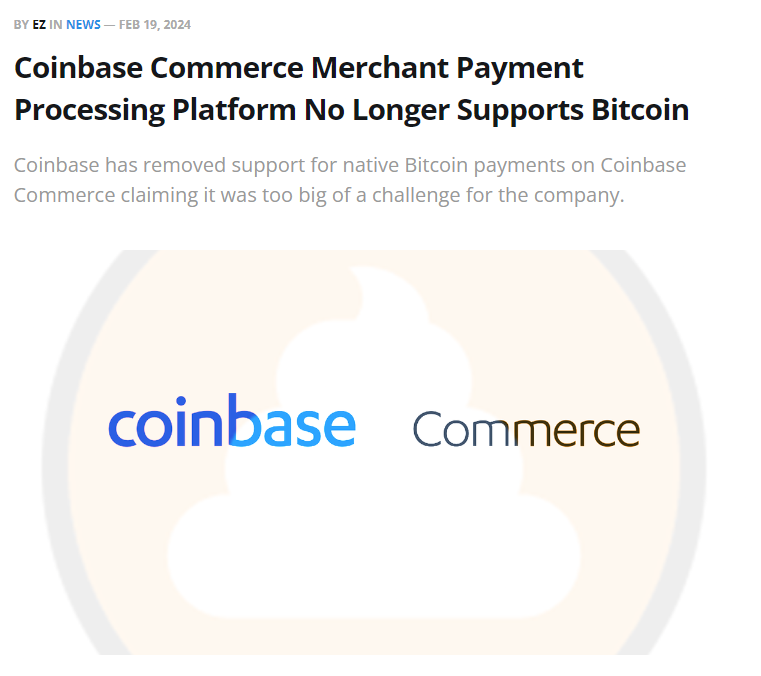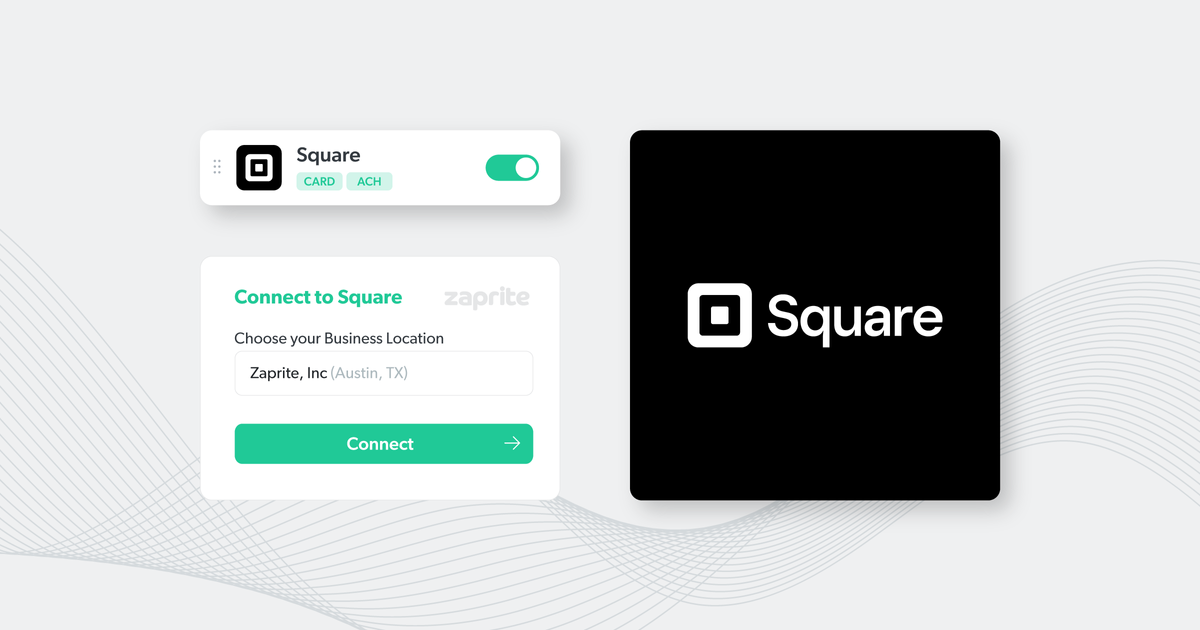

Coinbase Commerce's decision to remove native bitcoin support could significantly impact Coinbase Commerce's market share, driving merchants towards more flexible alternatives like Zaprite or BTC Pay Server.
Coinbase Commerce, a service designed to facilitate cryptocurrency payments for merchants, has recently announced the removal of native bitcoin support. This change means that while merchants can still accept bitcoin, the transactions can only be processed if the customer uses a coinbase.com account. Consequently, this update precludes the acceptance of bitcoin from self-custodial wallets or third-party exchanges.

This policy shift may have significant repercussions for Coinbase Commerce's market share, as merchants might opt for alternative payment processors that support a broader range of transaction sources. Alternatives such as Zaprite, BTC Pay Server, or other solutions that accommodate payments via self-custody wallets, both on-chain and through the Lightning Network, are likely to gain traction among merchants seeking to retain bitcoin-using customers.
Despite Coinbase's extensive history in the cryptocurrency space, its capabilities have been called into question. Competitors, including smaller startups, have successfully integrated payment options that Coinbase has yet to adopt, such as the Lightning Network. This has raised concerns about Coinbase's technological agility and commitment to servicing the bitcoin community comprehensively.
There has been criticism from industry figures regarding Coinbase's stance on bitcoin's smart contract capabilities. While bitcoin does support smart contracts, it does not offer Turing-complete smart contracts, which are more complex and versatile. This distinction, however, does not inherently hinder the acceptance of on-chain or Lightning Network payments.
There is speculation about the long-term implications of Coinbase's custodial role, particularly in relation to the U.S. government's potential actions. Historical precedents, such as the seizure of gold through Executive Order 6102 in 1933, are cited as potential analogs for future government intervention in the cryptocurrency domain.
The theory posits that in a scenario where bitcoin matches or exceeds the market capitalization of gold, a financial crisis could trigger government action to seize bitcoin held in custodial services like Coinbase. This would be a method for the government to stabilize the economy by nationalizing digital assets and compensating holders with a fixed amount of fiat currency.
In light of these concerns, cryptocurrency holders are advised to familiarize themselves with the process of withdrawing bitcoin from exchanges to personal wallets, ensuring self-custody of their assets. Learning to use hardware wallets and self-custodial wallets for both on-chain and Lightning Network transactions is crucial for maintaining control over one's digital assets.

The recent decision by Coinbase Commerce to restrict bitcoin payment options has implications for both merchants and consumers. While it raises questions about Coinbase's business strategies and technological capabilities, it also underscores the importance of self-custody. With the potential for regulatory intervention in the future, Bitcoin holders are encouraged to take steps to secure their assets independently.